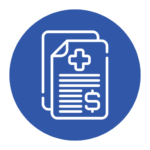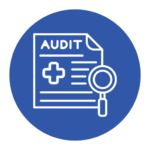Hidden Charges in Medical Billing: What Patients Should Be Aware Of
Introduction
When we visit the doctor or go to the hospital, we trust that we will receive the care we need without any unexpected costs. However, medical bills can sometimes come with hidden charges that patients may not be aware of. Med Revolve Billing helps you explore hidden charges in medical billing and what patients need to watch out for to avoid surprises.s
Understanding Medical Billing
It is very important to understand how medical billing works before we examine hidden charges. Healthcare providers send a bill to your insurance company when you receive medical treatment. The insurance company then pays a portion of the bill, and you are responsible for the remaining amount, known as the out-of-pocket cost.
Common Hidden Charges in Medical Billing
1. Facility Fees:
In addition to the charges for medical services, some healthcare organizations add an extra fee known as a facility fee. This fee covers the overhead charges of operating the facility, such as maintaining the equipment and utilities. While these fees are suggested to help facilities cover their expenses, they can catch patients unprepared. Especially if they were not aware of them beforehand. It is very important to know about facility fees before receiving treatment to avoid unexpected charges.
2. Out-of-Network Charges:
Connecting with your insurance network is very important to avoiding out-of-network charges. If you receive care from a healthcare provider who is not part of your insurance network, you may pay higher fees. Out of network providers typically don’t discuss charges with insurance companies, resulting in significantly higher charges for patients. It is very important to explore and analyze the charges before seeking treatment.
3. Unbundled Services:
Medical procedures often involve multiple elements, such as consultations, diagnostic tests and treatments. While these elements may feel like a part of a single service, they are unbundled and billed separately. This unbundling can lead to higher costs for patients as each element sustains its own fee. Patients should inquire about the possibility of unbundled services and have detailed knowledge about charges to avoid surprises.
4. Upcoding and Unnecessary Services:
Some healthcare providers may engage in upcoding, which involves billing for a more expensive service than what was actually provided. Similarly, patients may be billed for unnecessary services or procedures, leading to higher costs. It’s important for patients to review their bills carefully and question any charges that seem excessive or unnecessary.
5. Administrative Fees:
Healthcare providers may also charge administrative fees for tasks such as scheduling appointments, processing paperwork, or handling medical records. These fees are often not covered by insurance and can add up quickly, especially for patients who require frequent medical care. Patients should inquire about any potential administrative fees before receiving treatment to avoid unexpected charges.
6. Billing Errors:
Mistakes in medical billing are not uncommon and can result in overcharging or undercharging patients. Common billing errors include duplicate charges, incorrect coding, and billing for services not provided. Patients should carefully review their bills and contact their healthcare provider or insurance company to dispute any errors.
7. Out-of-Pocket Maximums:
While most insurance plans have an out-of-pocket maximum, some patients may be unaware of this limit. Once the out-of-pocket maximum is reached, the insurance company covers all remaining costs for covered services. Patients should be aware of their out-of-pocket maximum and track their healthcare expenses to ensure they are not overcharged.
8. In-Network Requirements:
Even when receiving care from an in-network provider, patients may still be billed for out-of-network services. This can happen if a healthcare provider within the network uses an out-of-network service, such as a lab or specialist.

Patients should verify that all services received are in-network to avoid unexpected charges.
Med Revolve Billing Has A Simple Guide On How to Protect Yourself From Hidden Charges in Medical Billing
1. Check Your Insurance Coverage:
Before scheduling any medical procedures, take the time to completely review your insurance policy. Pay attention to what services are covered and what your out-of-pocket cost may be. Understanding your insurance coverage beforehand can help you make informed decisions about your healthcare and avoid unexpected charges.
2. Ask About Fees in Advance:
Don’t hesitate to ask about any potential hidden fees when making appointments or scheduling procedures. Requesting detailed information about costs can provide clarity on what charges to expect and help you identify any additional costs. You can better prepare for the financial aspects of your healthcare and avoid surprises by discussing fees in advance.
3. Communicate with Providers:
If you receive a medical bill with unexpected fees, don’t be afraid to communicate with the healthcare provider or billing department. In many cases, providers are willing to work with patients to avoid certain charges. Especially if there has been an issue or error.
4. Review Your Bills Carefully:
When receiving a medical bill, don’t simply accept it at face value. Take the time to carefully review each line to ensure accuracy. Look for any unbundled services, facility fees or out of network charges that you were not aware of. Don’t hesitate to inquire about them if they are necessary.
Conclusion
It is very important for patients to watch out for hidden fees in medical bills. Understanding charges like facility fees, out-of-network costs and unbundled services helps avoid surprises. At Med Revolve Billing, we offer clear communication and careful bill review for fair billing practices.
Frequently Asked Questions
A fee schedule in medical billing is a list of predetermined amounts that a healthcare provider charges for specific services or procedures. It outlines the fees that will be billed to insurance companies and patients for various medical services.
A global fee in medical billing is a single, comprehensive payment that covers all related services and procedures provided during a specific period or for a particular treatment episode. This often includes pre-operative, intra-operative, and post-operative care.
A capitation fee in medical billing is a fixed amount paid per patient per period, regardless of the number of services provided. It is often used in managed care plans where providers receive a set fee to cover all necessary care for enrolled patients.
Fee for service in medical billing is a payment model where healthcare providers are paid separately for each service or procedure rendered. The provider bills for each individual service based on the fee schedule, and payment is made for each item billed.
Engage and Explore
How Med Revolve Billing can increase your revenue and optimize your RCM







